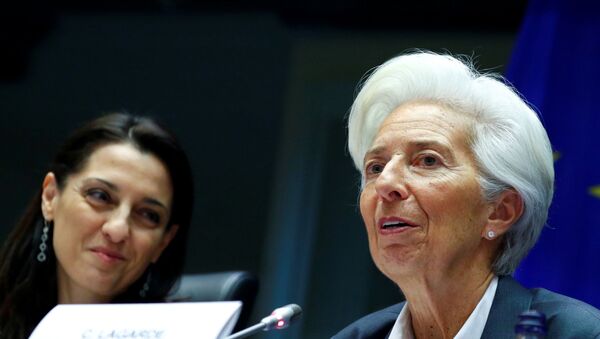"Let me start by looking at the current economic situation in the euro area, before moving on to the longer-term questions for monetary policy about which you have enquired. Euro area growth remains weak, with gross domestic product growing by only 0.2 percent, quarter-on-quarter, in the third quarter of 2019. This weakness has been mainly due to global factors," Lagarde said, while addressing the European Parliament's Committee on Economic and Monetary Affairs.
According to Lagarde, a lot of new challenges that affected the global economy appeared over the past years, and it could not be ignored in the process of reviewing the ECB's monetary policy.
"The macroeconomic landscape has been marked by the Great Financial Crisis and the sovereign debt crisis, and more recently by a low inflation environment. At the same time, new challenges have emerged such as demographics, disruptive technology and climate change. Conventional wisdom has been challenged and monetary policy globally has explored unchartered territories. This calls for us to review our strategy and to consider how our monetary policy can best deliver on our mandate," she pointed out.
The ECB chief added that it was too early to talk about a precise timeline of the review, but pledged that it would be based on the two principles: "thorough analysis and an open mind."


